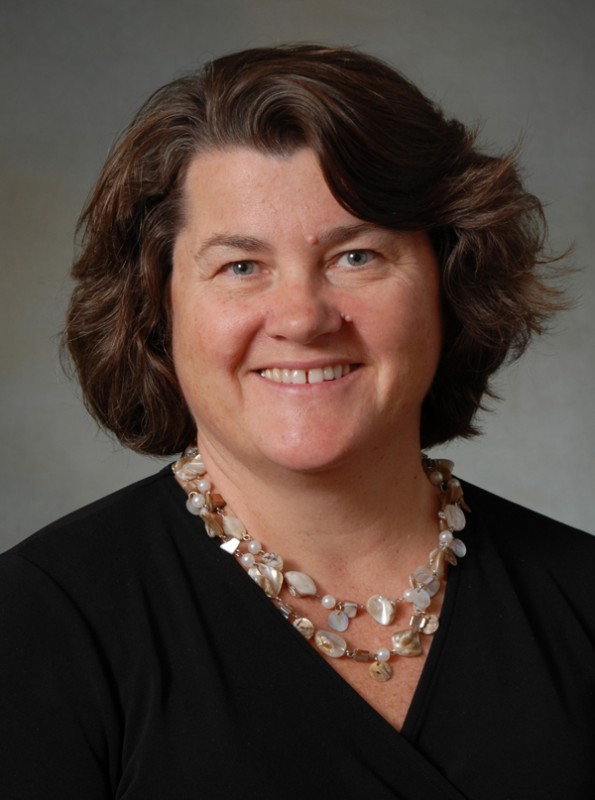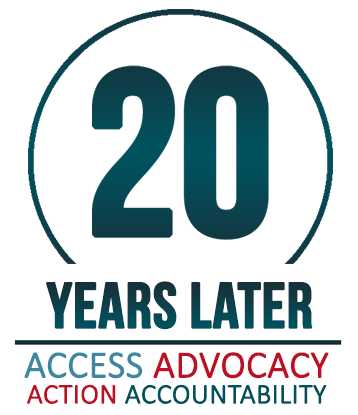Guest Post: Multidisciplinary Care Is the Hallmark of High Quality Care—So Why Doesn’t Everyone Get It?

Therese M. Mulvey, MD, FASCO, is the Physician-in-Chief at Southcoast Centers for Cancer Care, Massachusetts.
The fourth principle in the Imperatives for Quality Cancer Care states, “All people diagnosed with cancer should have access to and coverage for services provided by a multidisciplinary team of care providers across the full continuum of care. Health care plans should be held accountable for timely referral to appropriate specialists when symptoms of cancer or its recurrence may be present.”
Amy is a 49 year old working mother of two high school children, married to Joe, a general contractor. Amy was diagnosed with breast cancer six weeks ago. She and her husband are worried about the treatments prescribed for her care and present for a second opinion regarding her care. They express concerns about how long it is taking to get “everything done,” the financial impact of a prolonged time away from work in a two income household and the impact on their children who have not been told of the diagnosis yet.
As a medical oncologist, I know that six weeks from diagnosis of cancer and not on any specific therapy is unfortunately the norm, not the exception. Like most women diagnosed with breast cancer, Amy went to her community hospital radiology facility for a mammogram, the kind one gets every year for screening. Her PCP ordered the test and when the results were abnormal the radiology department called her PCP to get orders for a diagnostic mammogram and ultrasound, the tests that are done once something suspicious is seen on the screening study. The diagnostic mammograms were performed seven days after the screening mammogram and they confirmed a lesion that needed biopsy. The biopsy was performed using ultrasound guidance five days after the diagnostic test. Amy learned from her PCP a week after the biopsy that she had breast cancer. Her PCP would refer her to a colleague, a local surgeon who would see her the next day.
The surgeon advised a lumpectomy and sentinel node biopsy of her axilla and scheduled the surgery for two weeks from the visit date. She was reassured that two weeks was a reasonable time to wait due to operating room schedules and the disease itself. A week after surgery Amy and her husband were seen back in the surgeon’s office to learn that her tumor was not completely removed, she had positive margins and the lymph node was positive for cancer. She needed more surgery.
The second surgery would be scheduled in three weeks, as she needed time to recover from the first. The second surgery also left her with positive margins, and she learned that her tumor was 2.5 cm in size, three lymph nodes were positive for cancer, her tumor was estrogen receptor negative, and HER2 negative. She was scheduled to meet a medical oncologist who would see her in two days. She was told that she needed chemotherapy, radiation consult, CT scans, heart tests, a portacath device and labs—all before any therapy was started.

Read more posts from our “20 Years Later” series.
Had Amy been seen in a multidisciplinary clinic or presented at a tumor board where the surgeon, medical oncologist, radiation oncologist, social worker and patient navigator had been present, a very different plan may have been constructed and the time from diagnosis to systemic therapy could have been significantly shorter. Amy and her family would have had a road map of her care, anticipating the amount of time off needed, side effects anticipated, and multiple care providers involved in her decision making.
Amy may have benefited from up-front chemotherapy for her cancer before surgery. She would have had the ability to meet with a radiation oncologist to explain the role for radiation based on her surgical choice and the survival advantage one achieves if there are positive lymph nodes regardless of the surgery done. A genetic counselor would have discussed the benefits and risks of genetic testing, and the navigator would have coordinated visits, staging tests and visits to minimally disrupt the family’s life. The social worker could have assessed the financial impact of Amy’s diagnosis on her family and assisted with coping with a diagnosis of cancer for her, her children and husband.
Multidisciplinary care is the hallmark of high quality care for the reasons outlined above. So why doesn’t everyone get it? Multidisciplinary clinics are by their very nature inefficient, and they are poorly reimbursed. A surgeon or medical oncologist who can routinely see 10-15 patients in an afternoon can see 5-8 patients in a multidisciplinary clinic. Each physician may bill separately, but often a global bill is generated to support the salaries of the nurse navigator, social worker, rehab specialist, etc. A stipend is then provided to the physician. By its nature, the cognitive work done in such a setting is not recognized by payers, but the benefit to the patient is enormous and obvious. The barriers to such care in a rural setting are even greater. Some community cancer programs utilize technology to overcome distance and convenience. Regardless of the modality used, multidisciplinary care is a necessary component of high quality and coordinated care for every patient diagnosed with cancer.
“Multidisciplinary care is just that, many disciplines coming together.”
So what should a person ask when first diagnosed with cancer? First, ask, “Who will navigate my care?” If the answer is the physician, that is not their primary job. Physicians see people with problems, solve the problem, and move on. Primary care providers do a much better job at care coordination than specialists, but cancer is a complex and changing environment that a PCP cannot negotiate without help. Navigators—either lay persons or nurses—understand the disease, know the specialists who need to care for a patient with a specific diagnosis, and have access to schedules and offices to make it all happen in a coordinated fashion. Why see a surgeon first if chemotherapy is your best therapy up front? Likewise, why see the radiation oncologist if you choose surgery that eliminates the need for radiation, as often occurs in breast cancer. Worse, why choose a mastectomy if the patient wishes to avoid the six weeks of radiation only to learn that radiation is indicated because of the positive lymph nodes. Each specialist brings their expertise to the table, real or virtual, in multidisciplinary care. A coordinated approach with a dedicated navigator avoids misunderstandings, duplication of tests, and multiple visits and days off from work. It alleviates the anxiety of “not knowing what comes next” from an already life-altering situation.
Second, ask if the specialist you are seeing works with a select group of providers regarding your type of cancer on a regular basis. How many cases of your type of cancer do they see? A physician who makes a commitment to multidisciplinary care does so for one or two diseases, not everything. There is too much to know and too little time to know it all to do everything well. A generalist can do just fine so long as they coordinate with the multidisciplinary team, follow established guidelines and are willing to be measured by their cancer program for compliance to established standards.
Third, ask if the cancer program you are going to adheres to established guidelines and which ones—are they accredited by the American College of Surgeons, the National Accreditation Program for Breast Centers, etc? These credentialing bodies affirm that your care will be coordinated in a multidisciplinary fashion.
Last, ask if the navigator has the ability to coordinate your care from diagnosis through your disease continuum. Are there rehabilitation services available, survivorship services, support groups, counseling for family members, financial counselors, etc?
Multidisciplinary care is just that, many disciplines coming together. Care of the patient is not just about THE procedure, it is about the whole patient. I often say to young physicians that although I give chemotherapy, the patient gets it all, surgery, radiation, etc, and life after cancer. We have to be cognizant of that and provide those services for every patient, regardless of their zip code.
An ASCO member since 2001, Dr. Mulvey has served on the Quality of Care Committee, Value in Cancer Care Task Force, State Affiliate Council, Cancer Education Committee, and Best of ASCO Planning Committee. She has served as Chair of the Clinical Practice Committee and on the Editorial Boards of the Journal of Clinical Oncology and Journal of Oncology Practice.Dr. Mulvey was honored with the 2009 Goodspeed Chair Award and Lecture for Quality Care from Southcoast Hospitals Group. She has served on the Cancer Quality Alliance and as Chair of the Oncology Carrier Advisory Committee. In addition to serving on the Boards of Directors of numerous Massachusetts hospitals, Dr. Mulvey was a volunteer with the Bridge Over Troubled Waters Medical Van serving homeless youth. Dr. Mulvey received her medical degree from Tufts University School of Medicine, and completed her internship, residency, and fellowship at New England Medical Center. She completed a research and clinical fellowship at Massachusetts General Hospital and took an intensive course in cancer genetics and risk assessment at City of Hope Cancer Center. She has previously worked as a physician at other community practices in Massachusetts, including East Boston Neighborhood Health Center and Commonwealth Hematology Oncology, where she also served as President and CEO. She has worked as an instructor at Harvard Medical School and as an Assistant Professor at Tufts University School of Medicine. The views & opinions expressed in any guest post featured on our site are those of the guest author and do not necessarily reflect the opinions & views of the National Coalition for Cancer Survivorship. Read our blog and comment policies here.




